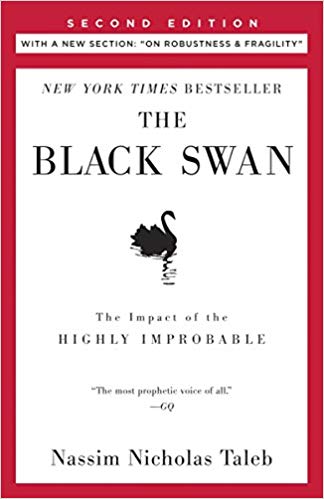

This article is an excerpt from the Shortform summary of "The Black Swan" by Nassim Taleb. Shortform has the world's best summaries of books you should be reading.
Like this article? Sign up for a free trial here .
What is the illusion of understanding? Why do we fall for it, and what can we do about it?
The illusion of understanding is the cognitive bias of thinking we have a grasp of what’s going on in the world when, in fact, the world is far more complex than we know. The idea of the illusion of understanding was popularized by Daniel Kahneman and Nassim Nicholas Taleb.
We’ll cover examples of the illusion of understanding and how it impacts our lives and how we make predictions.
The Illusion of Understanding
We all tend to think we have a grasp of what’s going on in the world when, in fact, the world is far more complex than we know. This is the illusion of understanding.
Platonicity and the Platonic Fold
Like Plato, with his abstract and ideal “forms,” human beings in general tend to favor neat, “pure” concepts that are universally consistent. These concepts—mathematical rules, notions of historical progress, economic laws—allow us to form models of the world so that predictions are much easier to make.
The problem with these models is that they lead us to “mistake the map for the territory”—that is, we are fooled into thinking the models are reality, rather than a very particular representation of reality that excludes outliers (i.e., Black Swans). This can lead to the illusion of understanding.
Taleb calls this natural human tendency to box in reality Platonicity and he holds it responsible for our dangerous confidence in our own knowledge. We become so enamored of our elegant, self-consistent models that we are unable to see beyond them.
It’s where our models cease to be useful that Black Swans occur—in the Platonic fold between our predictive models and unpredictable reality.
The Origins of Taleb’s Black Swan Obsession
To understand the effects of the illusion of understanding, let’s look at an example from Taleb’s life. Taleb’s first encounter with a Black Swan took place in his home country of Lebanon.
For centuries, the region around Mount Lebanon was known for its cosmopolitanism—located on the eastern shore of the Mediterranean, at the crossroads of Europe and the Near East, it was home to a vibrant mercantile population that included Christians and Muslims of various sects, Jews, and Druze.
This tolerant and multicultural paradise was still in existence in Taleb’s youth. He recalls the motley crew of international playboys, spies, writers, and merchants that frequented the country.
Taleb was part of the country’s aristocracy. Both of his grandfathers were educated in France, and one of them was serving as minister of the interior when a teenaged Taleb was jailed for participating in a political rally that turned violent. The government was scared enough of the unrest to grant all the arrested protesters amnesty.
Shortly after the rally came the Black Swan that launched Taleb’s obsession: A civil war between Lebanon’s Muslims and Christians that shattered the country’s millennia-long ethnic peace and reduced Beirut, Lebanon’s capital and the “Paris of the Middle East,” to rubble.
What this Black Swan brought home for Taleb was the blunt unknowability of history. The war wasn’t—couldn’t have been—predicted; it could only be explained after the fact.
For example, all the adults around Taleb predicted the civil crisis would last a matter of days (it ended up lasting around 17 years). Despite the fact that events kept contradicting people’s forecasts, people acted each day as though nothing exceptional had occurred. This is an example of the illusion of understanding.
The Illusion of Understanding and the Overvaluation of Facts
We accumulate information and listen to expert analysis of that information, but these elements never measure up to real events. This contributes to the illusion of understanding.
Taleb cites the example of his grandfather, who eventually rose to deputy prime minister of Lebanon. Although his grandfather was an educated man with years of experience in politics, his forecasts were proven wrong as routinely as those of his uneducated driver. Neither knew more than the other about the twists and turns of the war.
Newspapers, too, did nothing to help the Lebanese understand the war. They communicated information, but they didn’t make anyone’s predictions any more accurate. The reporters of the war also tended to “cluster”—emphasizing the same details and using the same categories as each other. Clustering reduces the complexity of the world—and leaves us vulnerable to Black Swans and the illusion of understanding.
(When Taleb was attending Wharton, he learned about “efficient markets”—the idea that trading securities can’t produce profits because all relevant information is publicly available and thus already built into prices. Upon absorbing this idea, Taleb completely ceased to read newspapers or watch television.)
———End of Preview———

Like what you just read? Read the rest of the world's best summary of "Black Swan" at Shortform . Learn the book's critical concepts in 20 minutes or less .
Here's what you'll find in our full Black Swan summary :
- Why world-changing events are unpredictable, and how to deal with them
- Why you can't trust experts, especially the confident ones
- The best investment strategy to take advantage of black swants






